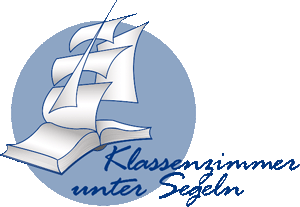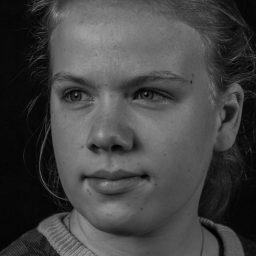Author: Lucie
Date: 15.02.2019
As I leave the ship in Maria La Gorda, Cuba, I am prepared to fulfil my mission – open eyes and ears is all I will need. My mission? Get to know it – “Socialism“. I have been told Cuba is one of the last countries on earth to spot it. But what are the signs? How does a socialist system mark a country?
Cycling through the countryside with my companions I peek over every garden fence. Is that it? Sitting on the veranda, smoking cigares? Or rather over there on the field, harvesting the tobacco leaves? I use our visit to a tobacco farm to investigate further. The farmer tells us about having to sell 90% of his harvest to the state. That seems to be the first hot track. No private property, everything belongs to the state.
In Pinar del Rio, I start to see more and more of it. The big buildings made out of prefabricated concrete slabs. During our visit to the school we are told about the US American embargo against Cuba. The USA, homeland of capitalism. Of course they did not approve of Cuba bonding with the Soviet Union, their biggest rival. However, how do you see a different political – a socialist – system as an enemy? What problem do the USA have with not only Cuba, but socialism in general? I will have to find out more about it to maybe be able to get the USA’s point of view.
In the city, I find different kinds of shops. The Cubans shop in little stores, from whose walls the colorful paint is peeling off. Unmotivated employees sell bread and rice for a few pesos, the national currency. The food – only sugar, rice, eggs and some other things, fruit and vegetables are not included – and most necessary items are subsidized by the state.
The next door I find one of the tiendas, shops where luxury items (which is basically everything above soap) and imported goods are sold. The prices are in CUC, the currency that is worth way more than the peso – and a privilege for tourists and other foreigners. For the Cubans, who all receive the same monthly salary of about 500 pesos (20 CUC or ~ 15 €), the prices that seem normal or only a little expensive to us are a fortune.
Making use of my rather advanced Spanish skills, I get to talk to a lot of Cubans during our journey. They tell me about how they would like to travel, but are not allowed to, because getting the necessary Visa is hard or nearly impossible, and above all, travelling is too expensive. But most times they proudly point out the advantages of their political system: Education and health care are free for everyone. Furthermore one can see a lot of places for old and sick people, for example special restaurants with very low prices.
The education indeed is good but at the school we visit in Pinar del Rio the old concrete walls of the classrooms where the students write on their free notebooks are ‚crumbling‘.
The US embargo ist making it hard for Cuba to import necessary construction material.
People do not like to talk about these problems. Criticizing the system can be dangerous.
On the streets of Havanna I buy a „Granma“, the national newspaper. There, I can read about the solidarity and help that Havanna’s citizens receive after the tornado that destroyed parts of the city. About how mean the USA are, how great the education in primary school works and how much the prime minister cares for his people.
I now think I start to see and understand socialism better. Equality and solidarity, that seems to be what counts. However, at the same time, I see the sacrifices it needs. Mostly, that is one’s personal freedom. They can work as much as they want, it will not make people earn more money. At the same time people see tourists spending what they gain in a month in less than a minute. People cannot just leave the country or even travel wherever they want. The newspapers tell people what the government wants them to read.
One might wonder whether Cubans actually are so fond of socialism. And after all I learned about this country I might say they maybe are not. One is able to see a lot of changes coming over this Carribean island. More and more private hostels are open to foreign tourists – „casas particulares“, where we also stayed too during our journey. Ever since the Soviet Union fell apart 30 years ago Cuba has needed the money tourism brings. One of the most revealing encounters I make is in a „Coppelia“, where subsidized ice cream is sold for one peso cubano per scoop. Luis, an old man, who used to play tennis and asks me if I know Boris Becker, says, the Cubans do not really care about socialism. They take whatever may come, may it be socialism or capitalism or something in between. As long as the glorious face of Che Guevara and his fellow heroes of the revolution are painted on the walls, and Jose Marti is watching you with his marble eyes from pedestals found in every school, Cuba is independent, great and unique.
Going back on board in Havanna after three weeks and looking back, I am rather satisfied.
After all the things I was able to experience and observe I think I was able to catch a glimpse of how socialism forms a country. I saw the advantages it brings, like the help and solidarity old and sick people experience. And how Cubans always point out, free education and health care. But I also could get an impression of the less shining side, the restricted freedom and the poverty of the major population. All in all, I would say, that the socialistic system plays a big part in the daily life of the people, but in Cuba, the history of the revolution and the nationalistic attitude are way more influential.

